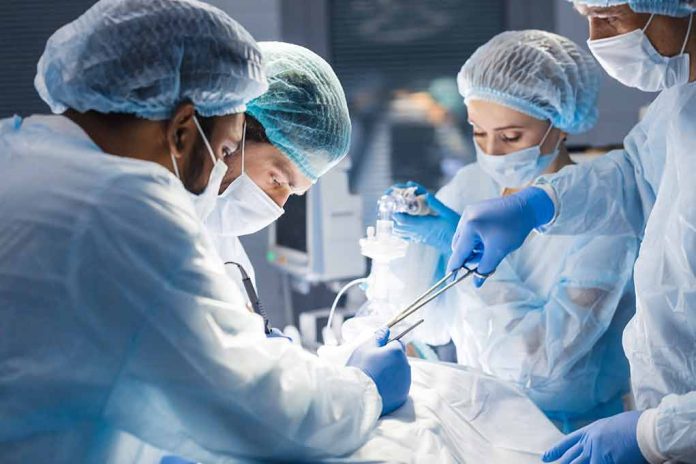
In a groundbreaking decision, the FDA has approved Symvess, a lab-developed blood vessel, marking a major advancement in regenerative medicine.
Key Takeaways
- The FDA approved Symvess as a vascular conduit for extremity arterial injury.
- Symvess provides an alternative when autologous vein grafts are not feasible.
- The vessel was developed by Humacyte Global, Inc., under Priority Review.
- Despite internal concerns, the FDA approved the vessel in December.
- Symvess is marketed for both hospital and military use.
FDA Approval of Symvess
The FDA has given the green light to Symvess, the first acellular tissue-engineered vessel. Designed for use in adults with extremity arterial injuries, Symvess offers a novel solution when urgent revascularization is necessary and traditional options like autologous vein grafting are not viable. This innovation highlights significant strides in bioengineered solutions in healthcare and demonstrates the potential reduced reliance on donor tissues and organs.
Symvess, developed using human extracellular matrix proteins and manufactured with human vascular smooth muscle cells, was examined in a study involving 54 patients. The device showed promising results with 67% primary patency and 72% secondary patency at 30 days. Despite these promising statistics, the FDA remains cautious, encouraging the reporting of any adverse events through its MedWatch Adverse Event Reporting program.
Concerns and Considerations
FDA scientists internalized the concerns regarding the vessel’s safety and effectiveness. The scientists labeled some outcomes, such as deaths and amputations, as failures due to insufficient data on vessel clarity. This highlights the pressing need for thorough clinical evaluations of lab-grown tissues, emphasizing potential risks such as thrombosis, fever, pain, and anastomotic stenosis.
According to Christina Jewett, at the NY Times, “At the F.D.A., though, scientists counted the deaths, amputations and the lost case as failures, records show, noting a lack of information to determine if the vessels were clear.”
The FDA’s decision to approve Symvess reflects a delicate balance between innovation and regulatory prudence. While the vessel’s innovative design gives hope to patients in need, the risk of serious complications like graft rupture and infectious disease transmission remains a point of concern.
A Step Toward Progress
Despite skepticism, the FDA’s sanction of the Symvess vessel signifies confidence in its potential healthcare benefits. This marks a pivotal moment for regenerative medicine, paving the way for further research and development. The integration of bioengineered solutions in the medical field can revolutionize treatment approaches for patients with severe injuries.
“The FDA remains committed to facilitating the development of innovative products that offer potentially life-saving benefits for patients with severe injuries,” said Dr. Peter Marks, director of the FDA’s Center for Biologics Evaluation and Research, or CBER.
Symvess is being marketed not only to hospitals but also for military applications. Its use in situations where patients cannot utilize their own veins for grafting signifies a new era of treatment possibilities. The synergy between innovation, safety, and regulatory oversight will define the future of bioengineered medical solutions.
Sources:
- https://www.prnewswire.com/news-releases/fda-approves-first-acellular-tissue-engineered-vessel-to-treat-vascular-trauma-in-extremities-302337371.html
- https://www.fda.gov/vaccines-blood-biologics/consumers-biologics/consumer-alert-regenerative-medicine-products-including-stem-cells-and-exosomes
- https://www.nytimes.com/2025/03/24/health/fda-artificial-blood-vessel-trauma-humacyte.html
- https://feedpress.me/link/20202/16990833/yZy0O



